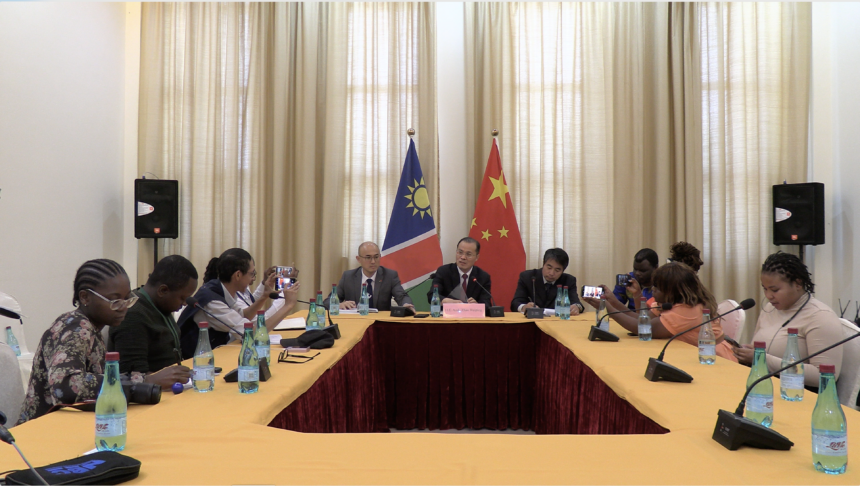Chinese ambassador to Namibia, Zhao Weiping, has urged Chinese-owned companies to comply with the labour laws of the country.
He made these remarks during a media briefing about the latest progress in the bilateral relationship between Namibia and China.
Recent reports have raised concerns that some Chinese-owned companies operating in Namibia are failing to follow the country’s labour laws.
These include claims that they underpay staff and subjecting employees to poor working conditions, with allegations of sexual harassment also emerging.
Ambassador Zhao emphasised the need for all Chinese nationals and companies to respect local laws and the rights of workers.
He praised large companies, such as Swakop Uranium and Rossing Uranium, for their compliance, but acknowledged that smaller or newer businesses may require more time to adapt to the local conditions and laws.
He highlighted the significance of sectors like crafts, sewing and agriculture, noting their vital role for providing ordinary people with jobs.
He expressed admiration for Namibian leaders, particularly Vice President Netumbo Nandi-Ndaitwah, who has emphasised the importance of developing these areas.
He made reference to a bilateral training programme that was launched last year and focused on cultural heritage.
This initiative not only included famous cultural sites but also aimed to promote traditional craftsmanship.
He illustrated his point by referring to kite-making in China, which has developed into a commercial industry.
The ambassador noted that a group of trainers were sent to Namibia for three weeks in collaboration with the education ministry.
Their trainees learnt significantly from this experience.
There are proposals to send a group of trainees to China next year to continue this training programme, along with plans to sign an agreement to establish exchange programmes.
He noted that each year, around 300 training opportunities are provided to Namibians, with the hope to expand these programmes in the future.
The ambassador also announced that eight Chinese agricultural experts are in Namibia through a partnership between the Chinese government and the Food and Agriculture Organisation.
They will be working in the country for two years, with an additional four experts arriving for six months.
This programme is being implemented in collaboration with the agriculture ministry.
The ambassador emphasised the potential for enhanced agricultural cooperation, including joint plantation initiatives and the use of Chinese government grants for borehole drilling programmes.
He expressed optimism about collaborating to tackle challenges such as water shortages and agricultural issues, stating that there is much more to achieve together in future.



